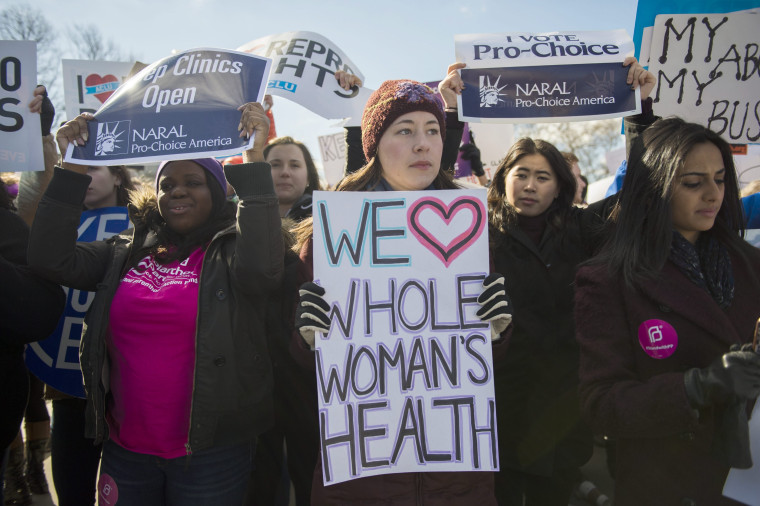The Supreme Court’s 5-3 decision in Whole Woman’s Health v. Hellerstedt Monday, striking down one of the nation’s most restrictive laws on abortion doctors and facilities, is receiving praise from Asian-American advocacy groups and elected officials.
“Today is a very important victory,” executive director of National Asian Pacific American Women’s Forum (NAPAWF) Miriam Yeung told NBC News. “We are relieved, we are celebratory, we are proud.”
Passed in 2013, the Texas House Bill 2 law increased regulations on abortion providers in the state, requiring doctors to have admitting privileges at nearby hospitals and requiring more strict facility and equipment standards.
Texas claimed its law, passed by a Republican-led legislature and signed by a Republican governor in 2013, was aimed at protecting women’s health. Since the law was passed, the number of clinics providing abortion services in Texas dropped to 19 from 42.
RELATED: Asian-American Advocates Celebrate, Bemoan Affirmative Action Decision
“Today's ruling affirms what we already knew: the Texas law was a sham,” Christopher Kang, national director of the National Coalition of Asian Pacific Americans (NCAPA), told NBC News. “Striking down this law is a victory for all women, but in particular for low-income women and women of color, who have been affected the most.”
Over 266,000 Asian American and Pacific Islander women of childbearing age live in Texas, and one in eight AAPI women in Texas live in poverty.
The Court’s ruling resonates beyond Texas' borders, as states across the nation could have enacted similarly restrictive laws, according to Kang.
“The impact goes far beyond Texas — which has the third most AAPIs in the nation, many of whom already face barriers to accessing health care,” Kang said. “This decision reaffirms women’s constitutional right to make their own decisions about whether to seek a safe, legal abortion.”
While advocates applauded the ruling as a step in the right direction, they all agree on one thing: there is more work to be done.
“[They] have found that the restriction causes an undue burden, but we must remain engaged,” Yeung said. “We know in our community that we face barriers to our healthcare.”
RELATED: Asian-American Leaders Vow Continued Work After SCOTUS Immigration Decision
The AAPI community faces numerous disparities which may threaten their health, according to the U.S. Department of Health and Human Services Office of Minority Health. Health conditions can often go unrecognized among the Asian American population due to lack of data — e.g. about one in two Asian Americans are unaware that they have Type 2 diabetes.
“Texas is only one state out of many which has enacted predatory laws aimed at shutting down clinics that provide reproductive health care services and highlights how far some states will go to restrict a woman’s right to choose,” said Hawaii Senator Mazie K. Hirono in a press release. “We must remain vigilant against such measures going forward.”
Follow NBC Asian America on Facebook, Twitter, Instagram, and Tumblr.
